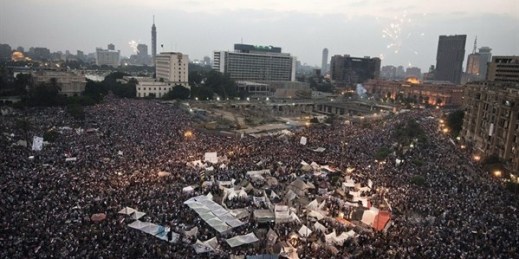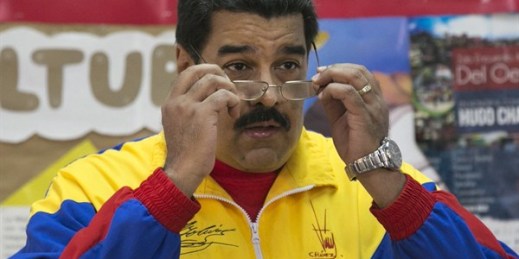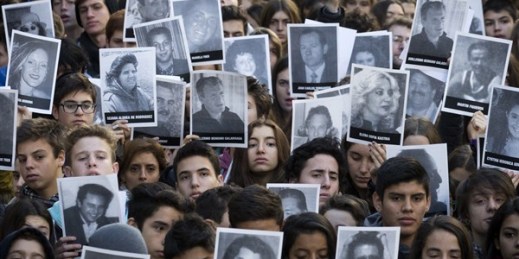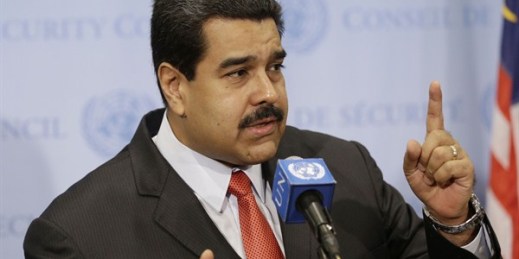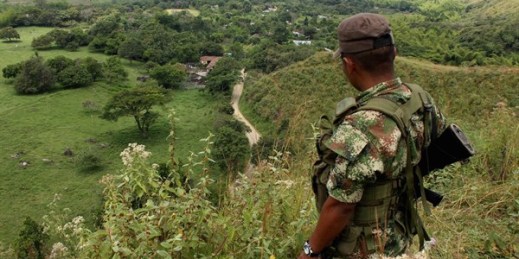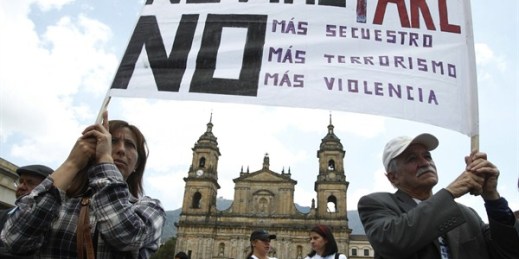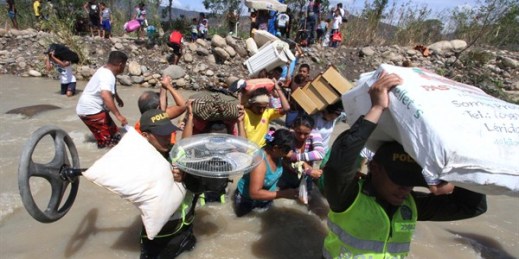
When three Venezuelan soldiers and one civilian were injured during anti-smuggling operations on the border with Colombia last week, Venezuela’s embattled president, Nicolas Maduro, launched an escalating series of measures that created a major crisis with its neighbor and raised questions about hidden political movies. By all appearances, Maduro has found a convenient scapegoat for the multiplying problems besetting Venezuela’s economy and its people, and has done so just in time to affect crucial legislative elections in December that could threaten his hold on power. Maduro is exploiting the situation to shift blame for the country’s deterioration under his watch. […]

